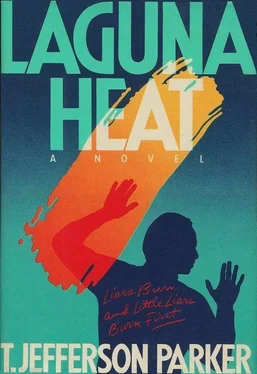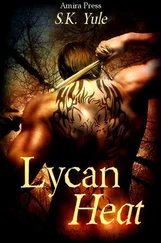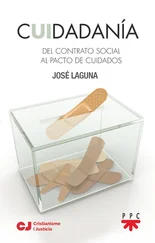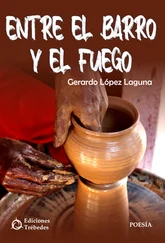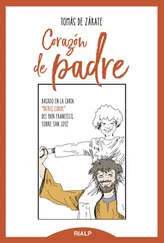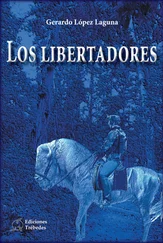The old pictures make me sad. Going to pack all this up today and take to Dorothea at the Historical. I’m sick of writing, and who cares about the old times anyway? Time for me to be rid of it all and start on something else. Perhaps knit more. Who would send me such a bad thing as that Bible? I feel safe in the house here like Joe said. Saw Wade Shephard’s sermon on the TV last week and really very good. He’s grown into such a strong, good man after all the hell he was in after Colleen died. Skeeter misses his walks. Just thought of it now, but it’s been three years since I’ve been to the beach, although I can see a little bit of it from the third floor here, and with the white all around me and the quiet, the ocean doesn’t seem as terrifying as it used to. Tried to get my life as white as could be. That sounds like laundry. Always think of parts of him being in the ocean. But that is over now. Everything seems over now for some reason. I’m tired. Good night Burton.
As if approving an official statement, Hope Creeley had signed the last page. Shephard saw that the signature, unlike the scribbled entry, was clear, confident, and graceful. A final testimony to spirit over gloom, hope over despair. In some small way, he thought, she had won.
And so, in a way, had he. A path was opening before him now, and it pointed straight to the Surfside.
Behind him, Shephard heard the door open, the jingling of a tiny bell, and Dorothea Schilling’s frail voice welcoming a new browser to the Society. The voice of the man who answered her was deep, clear, and unmistakable.
“I’m Toby Benson with the Times , doing a story on Hope Creeley. I understand she made a donation to the Society recently. May I see it?”
Mrs. Schilling explained that the contributions available to the public were already being enjoyed by one history buff, and that Mr. Benson could join him in the back room. A moment later, Mr. Benson’s large and well-dressed form was standing over Shephard, his face hardening as he looked down. Shephard stood up and left the diary and clippings on the couch.
“Bruce Hard-on, buddy, chum. How the hell are ya?”
Bruce Harmon reddened, and Shephard was aware of the rage percolating through the big man’s body. In the cramped room, he looked even larger than before, and less predictable.
“It’s public record now,” he said slowly. “Public record now that the Historical Society has it.” Dorothea Schilling’s wide-eyed face peeped from around a wall.
“They don’t have it, Bruce. I do. If you want a look, tell me who sent you to take it.”
Harmon’s eyes found the diary and box of photos laying on the couch beside Shephard. His instincts told him to smash what was in his way, Shephard guessed; his brains told him to wait. And Shephard’s own instincts told him to arrest Harmon for obstruction and hold him forty-eight hours before not bringing charges, which would be thrown out by the district attorney anyway. But something beyond instinct told him that Bruce Harmon was worth more left alone, that the free are at liberty to make mistakes. Cop and ex-cop read each other’s thoughts with identical speed and accuracy. At the same time, they offered each other the slow, premeditated smiles used by police officers throughout the world, smiles as dry and mirthless as sand, meant to lull, confuse, disarm.
On his way out, Harmon nearly capsized Dorothea Schilling, who had just come around the corner bearing another cup of scalding coffee. He grunted past her, slamming through the door. She watched him in cowed embarrassment.
“So many of them lose interest,” she said confidentially. And she reluctantly consented to let Detective Shephard keep the Creeley diary for “a day or two at the most.”
From a pay phone on the highway, Shephard called Pavlik and found that a red 1964 Coupe de Ville had been ticketed outside Forest Avenue Books at 2:12 P.M. on Monday, August 25. The car was a convertible and the plates read 156 DSN, California. And due to Sacramento’s usual computer logjam, Pavlik lamented, he still didn’t have the name of the registered owner. It had not been reported stolen.
A busy killer, Shephard thought as he hung up. He walked to the Mustang and leaned against the black body, hot in the late morning sun. Looking across Coast Highway to the ocean that twinkled silver-blue on the horizon, Shephard took out his notebook and charted the killer’s movements. Nine days ago, the man had mailed a Bible to Algernon from Sacramento. On Saturday, three days later, he had rolled Steinhelper and taken his wallet. Sunday, he arrived from Sacramento in Laguna on Greyhound line 52. By six Monday morning he had removed Algernon from the realm of the living. By seven he had checked into the Hotel Sebastian, washed up, paid in advance for three days, and left his can of turpentine and his stolen identification in the night-stand drawer. A very busy man.
Shephard realized with modest but welcome clarity that the stolen identification had been left behind on purpose. Good, he thought, our man is thinking of us.
By nine, Shephard figured, the suspect had left — just after Bruce Harmon, and just before Shephard himself, had arrived. At two o’clock he went to Forest Avenue Books, purchased the used Bible, possibly sat under the shade of one of the city’s venerable eucalyptus trees as he penned the brief but terrifying note to Hope Creeley, then walked across the street to the post office and mailed the book. It had arrived at Creeley’s mansion a day later.
One day after that, he had gone to Creeley and done what he said he would do, and the misery he made hers was considerable. Had he cut off her eyelids so she would have to watch? Shephard shivered.
Sometime before Monday at 2 P.M. he had found a car.
And sometime before Tuesday he had found a safe place to sleep.
He was working methodically, accurately, quickly. Working like he knew the city.
Shephard pulled the now-wrinkled Identikit sketch from his pocket and studied it under the glare of the sun. The wry, confident face studied him back.
His father had insisted on an early lunch. The table of his Arch Bay Heights home was set for two, and the Reverend Wade Shephard, tanned and serene, was quick to offer his son a glass of white wine. Wade, by personal decree an alcoholic, no longer drank, but the wine was present at every meal as an invitation to guests and as a test for himself. The liquid splashed tunefully into the goblet; his father smiled. It was the reverend’s smile, not the policeman’s, Shephard thought as he sat down. As a boy he had been intrigued by his father’s smile, its wariness and suspicion, its taunting secrecy. But the smile of Wade the Reverend was forgiving, warm, public.
“I apologize for the early hour, but I’ve got a wedding this afternoon,” he said. “Two young people from the congregation, charming couple. How’s the head, son?”
“Healing rapidly.”
“Good, good. Wouldn’t hurt to lay off the booze,” Wade said with encouragement. “You sounded pretty hammered the other night. It’s so good to see you again, Tommy. What do you hear from Louise, anything?”
“A little. She moved into a friend’s home in time for the peak tanning season. Malibu.”
Her friend was Robert Steckman, the movie producer, and his smooth voice returned to Shephard’s ears as he sipped the wine. She’s too beautiful to be unseen by this town, he had told Shephard at a party one night. Steckman had “found” Louise at Bullock’s Wilshire, where she worked, and they had developed a quick and cheerful friendship that Shephard mistrusted and felt excluded from. Too beautiful to be unseen, he thought. And now, a year later, Steckman had taken her into his Malibu home, undoubtedly to be seen.
Читать дальше
